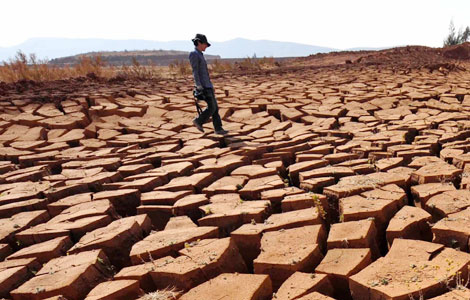Parents look to sessions for more kindergartens
Updated: 2012-02-28 07:43
By He Dan and Luo Wangshu (China Daily)
|
|||||||||||
BEIJING - Parents, competing for kindergarten spots for their children, expect the country's top legislators and political advisers who will attend the two upcoming important political sessions to contribute their wisdom to ease their grueling task.
Premier Wen Jiabao, who delivered his work report to the National People's Congress last year, pledged to speed up providing more educational resources in this sector by boosting the development of both public and private kindergartens.
In 2010, there were about 150,400 kindergartens nationwide, offering places for more than 29.7 million children, based on the latest statistics from the Ministry of Education, translating into an enrollment rate of 56.6 percent.
The Ministry of Education announced an action plan at a news conference in September that the government planned to create more than 5 million new places in kindergartens by setting up new kindergartens or expanding old ones in the next three years.
In the past six months, local governments nationwide have built more than 16,000 kindergartens, capable of accommodating 4 million children, reported Xinhua News Agency, citing data from the ministry.
However, the current achievement has yet to meet the public's expectation and the difficulty of preschool enrollment has not been eased, Deputy Education Minister Liu Limin was quoted by Xinhua as saying on Friday.
Take Beijing for example. There are 278,000 children who are currently enrolled in 1,245 kindergartens in the city, and local officials have been making efforts to open another 75,000 seats by 2013, Beijing's deputy mayor Hong Feng was quoted as saying by Xinhua.
However, Beijing will be home to about 460,000 kindergarten-aged children in 2013, said Duan Chengrong, a professor of demographics at Renmin University of China's School of Sociology and Population Studies.
Duan explained there are about 460,000 babies in Beijing born from 2008 to 2010, who require preschool education when they reach the age of three.
Therefore, a large number of children will have to stay out of preschools.
"Although the government vowed to encourage the development of both public and private kindergartens, there are no concrete measures to boost the latter's growth," said Xiong Bingqi, deputy director of the 21st Century Education Research Institute, a private, nonprofit policy-research body.
A boss surnamed Wu from a kindergarten dedicated to migrant workers' children in Beijing's Daxing district said the kindergarten has never received any financial support from the government since it opened in 2006.
"We are on our own to survive and there is no public funding for kindergartens like us," said Wu, adding that educational authorities only do regular safety checks on the school and give operational guidance.
The government should ensure fair distribution of educational resources between the two types of preschool institutions instead of raising spending on public ones that can only benefit 15 percent of children, said Xiong.
Li Jianli, principal of a kindergarten in Beijing's Xicheng district, worried that China is running short of qualified teachers to guarantee quality education in those newly established kindergartens.
"It's easy to build kindergartens, but professionals cannot be trained in a short time. Although universities have been educating more students majoring in preschool education, we have to wait at least three years till they graduate," said Li.
Related Stories
China to hold annual 'two sessions' 2012-02-21 21:15
Top advisory body prepares for annual session 2012-02-21 21:47
National advisory body prepares for session 2012-02-26 22:30
Hot Topics
Wu Ying, iPad, Jeremy Lin, Valentine's Day, Real Name, Whitney Houston, Syria,Iranian issue, Sanyan tourism, Giving birth in Hong Kong, Cadmium spill, housing policy
Editor's Picks

|

|

|

|

|

|







